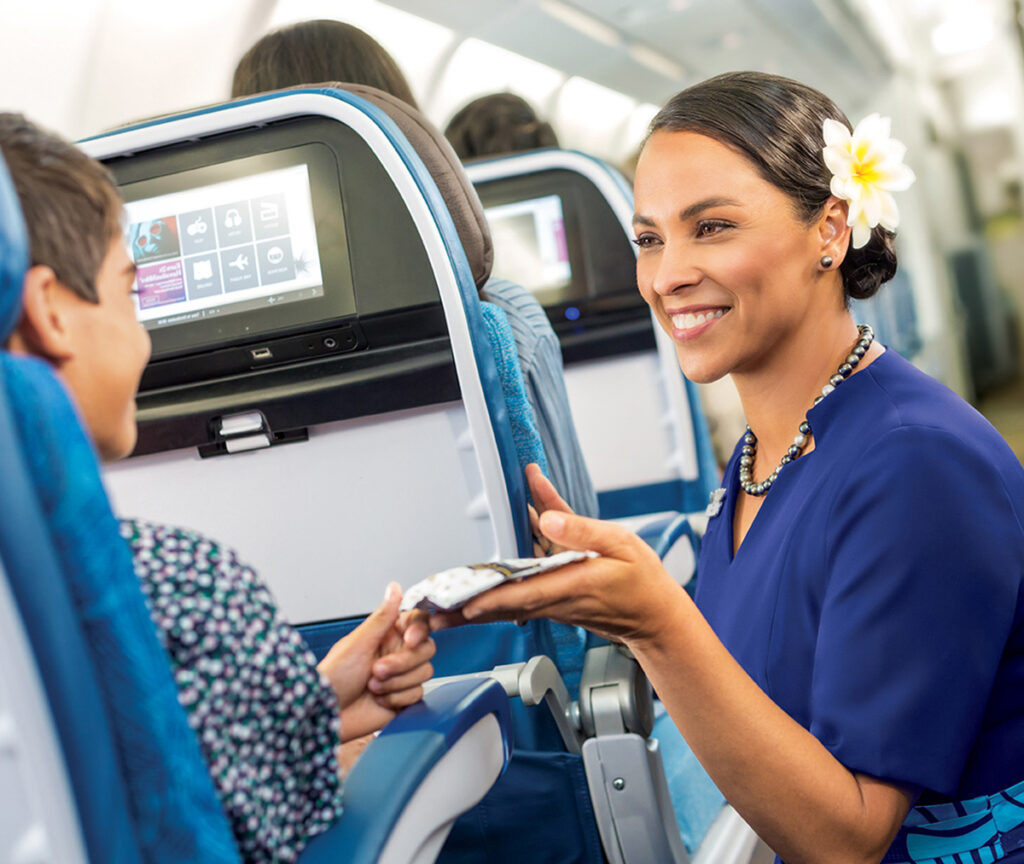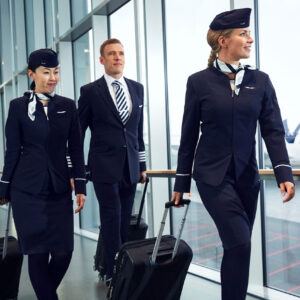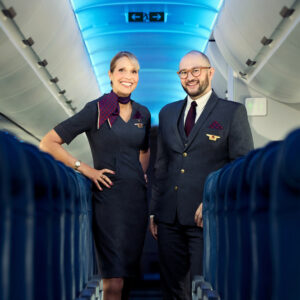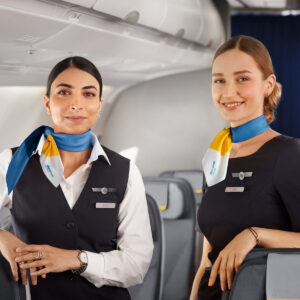Exploring the Cabin Crew Meaning: Roles and Responsibilities
When you step onto an airplane, the first faces you see are those of the cabin crew. But who are they exactly, and what roles do they play? This article unveils the cabin crew meaning, diving deep into the roles and responsibilities of these professionals who are the heart and soul of every flight.
Defining the Cabin Crew
The cabin crew is a team of professionals who work tirelessly to ensure the safety and comfort of passengers aboard commercial flights. They are the primary contact point between the airline and its passengers, representing the airline’s brand and values.
Roles and Responsibilities
While many passengers associate cabin crew with serving meals and drinks, their responsibilities extend far beyond these tasks.
Safety Protectors
The cabin crew’s primary responsibility is to ensure passenger safety. They are trained to handle a variety of emergency situations, from sudden turbulence to full-scale evacuations. Before each flight, they guide passengers through safety procedures, a critical step in preparing everyone on board for potential emergencies.
Customer Service Providers
Cabin crew members are also responsible for providing a comfortable and enjoyable flight experience. They assist passengers with their needs, answer their queries, and manage any onboard issues, such as unruly passengers or medical emergencies.
Brand Ambassadors
As the most visible representatives of their airline, cabin crew members play a crucial role in shaping the company’s image. Their professionalism, demeanour, and service quality can significantly influence passengers’ perception of the airline.
Training and Qualifications
Becoming a cabin crew member is no easy feat. It requires rigorous training and a specific set of skills:
Technical Training
Prospective cabin crew members undergo extensive training programs that cover a range of topics, including first aid, firefighting, emergency procedures, and survival skills. In the United States, for instance, flight attendants are required to earn a Certificate of Demonstrated Proficiency from the Federal Aviation Administration (FAA).
Customer Service Training
They also receive training in customer service and public relations to ensure they can provide the highest level of service to passengers.
Personal Qualities
In addition to technical skills, cabin crew members must possess certain personal qualities. They need to be patient, empathetic, and have excellent communication skills. They must be able to work as part of a team, often in confined spaces and under challenging conditions.
The Significance of Cabin Crew in the Aviation Industry
The role of the cabin crew is vital in the aviation industry. They ensure that safety regulations are adhered to and provide a high level of customer service. Their work significantly contributes to the overall flight experience, which can influence a passenger’s choice to fly with the same airline again.
Conclusion
The cabin crew meaning extends far beyond just service providers; they are safety protectors, customer service specialists, and brand ambassadors. The next time you board a flight, remember that the cabin crew is there to ensure your journey is safe, comfortable, and enjoyable. Their role is multifaceted and crucial to every flight’s success, making them an indispensable part of the aviation industry.
Frequently Asked Questions
What does a cabin crew do?
The cabin crew is responsible for ensuring the safety and comfort of passengers during a flight. Their duties include conducting safety briefings, serving meals and drinks, assisting passengers, and handling emergencies.
Are “cabin crew” and “air hostess” the same?
Yes, an air hostess is a term often used to refer to a female member of the cabin crew. However, the term “cabin crew” is more inclusive, as it covers both male and female staff.
What is considered as part of the cabin crew?
Cabin crew refers to the team of flight attendants working on an aircraft during a flight. They are employed by airlines to ensure the safety and comfort of passengers.
Is being a cabin crew member a good job?
Being a cabin crew member can be a rewarding job for those who enjoy travel and customer service. It offers unique opportunities like visiting different places and meeting new people. However, it can also be challenging due to irregular working hours and the need to manage difficult situations in-flight.
Do cabin crew members get paid?
Yes, cabin crew members receive a salary, which varies depending on the airline, their experience, and the country they are based in. Some airlines also provide allowances for meals and accommodation.
Is the job of a cabin crew member easy?
The cabin crew job can be demanding. It requires dealing with different types of passengers, handling emergencies, and working during odd hours. However, for those who enjoy challenges, customer service, and travel, it can be a fulfilling career.
Do cabin crew members get to travel?
Yes, one of the perks of being a cabin crew member is the opportunity to travel, both domestically and internationally. However, the amount of time they get to spend in each location can vary.
What skills are required for a cabin crew member?
Cabin crew members need a variety of skills, including excellent communication, customer service skills, the ability to stay calm under pressure, problem-solving skills, and a high degree of professionalism. They also need to be physically fit and able to meet certain height and reach requirements.







